Pretty much everything is risky during pregnancy. That’s why a lot of women wonder if it’s actually safe to take a baking soda bath while pregnant…
Baking soda is a familiar kitchen ingredient with a wide array of applications. It can be used in a bath to assist clean the body or reduce itch, redness, or infections especially when pregnant.
Its antacid and antifungal features are a great product to add to your bath; however, there may be certain precautions to know if you’re pregnant.
This article will feature the advantages, disadvantages, tips, and things you need to know when taking a baking soda bath while pregnant.
Advantages of Baking Soda Bath
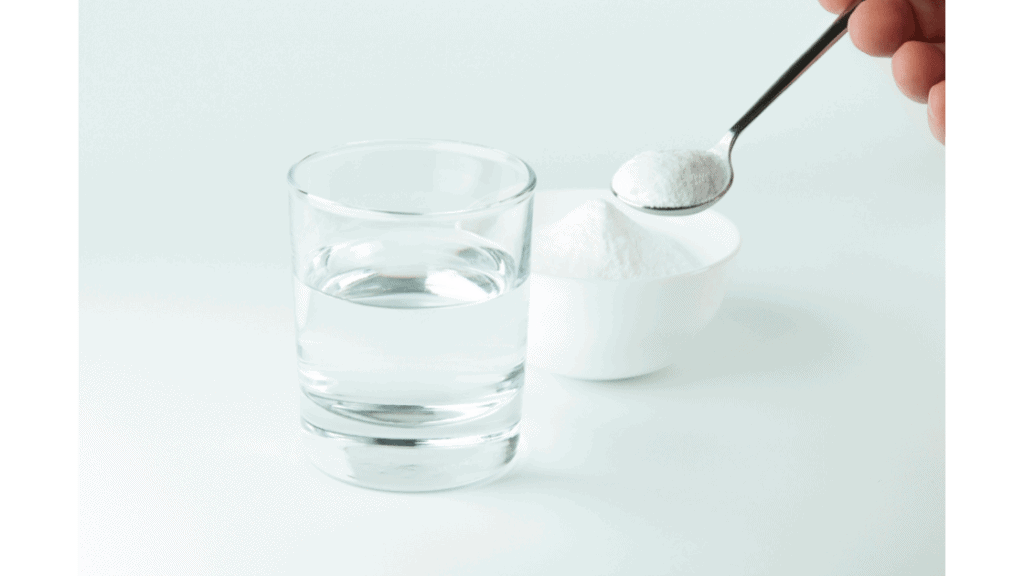
Sodium bicarbonate has been shown to have no harmful effects on an unborn child. Baking soda works wonders against the acids your body creates when pregnant, providing soothing relief from heartburn.
Water, carbon dioxide, and salt are some of the byproducts of baking soda’s reaction to gastric acid. Aside from being an antacid, baking soda can also help pregnant women ease itchiness because of its antifungal features.
You can directly put a baking soda solution to the affected area on the skin. Your skin’s pH balance will be restored thanks to this.
Vaginal itching is common in pregnant women, although it can be bothersome. Medicines may cause yeast infections.
In the case of vaginal itching, baking soda baths may be able to help, but it all depends on the root cause of itching.
The alkaline composition of baking soda makes it an effective antifungal agent. As a result, using it to manage vaginal yeast infections creates an undesirable condition for germs to live.
Baking soda taken internally or in food is safe for pregnant women in tiny doses. It is safe to consume, and there are no side effects that make even external use safe.
Disadvantages of Baking Soda Bath
Baking soda, which includes salt, causes the body to retain water. Pregnant women with swollen feet are advised to follow a low-sodium diet because of this tendency.
Baking soda is an excellent antacid, but it can worsen the condition if you suffer from edema.
Using baking soda as an antacid may help lessen heartburn, but it will worsen your symptoms if you are already experiencing edema.
For pregnant women, baking soda is categorized as “C” for animals, which means it has shown adverse effects on their babies. However, no controlled studies mention anything about a human in women are available, or studies on women and animals are not accessible.
It is still best to get the advice of a doctor before doing a baking soda bath while you are pregnant.
If there are other safer antacids on hand that you can use, you should avoid using baking soda.
Is Baking Soda Bath Safe While Pregnant?
Bathing in a tub filled with baking soda dissolved in lukewarm water is called a baking soda bath. Some minor skin problems might improve from this treatment.
If your cervix is still totally sealed off, baking soda, Epsom salt, and bubbles during the bath are perfectly safe.
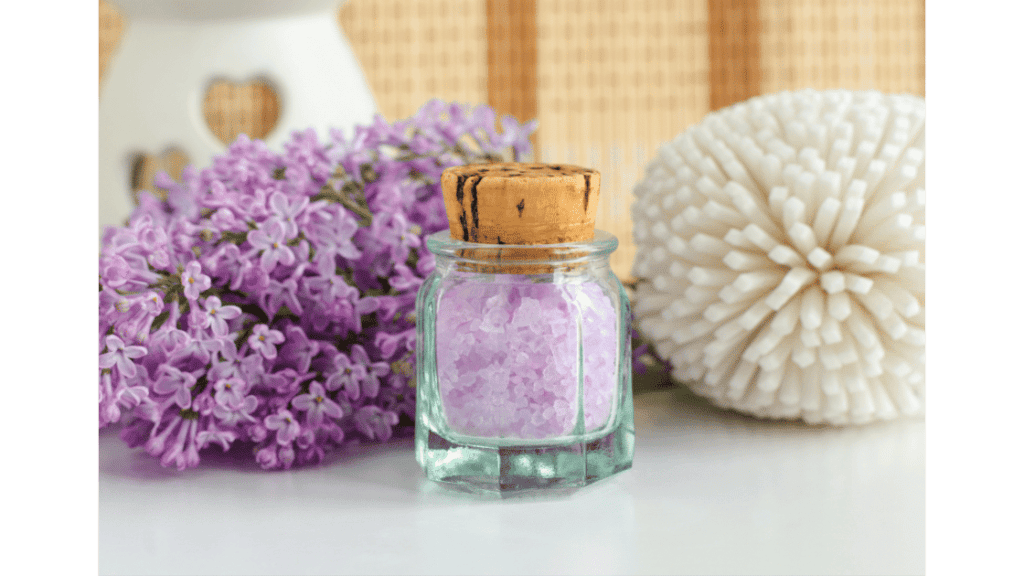
Baking soda is safe for the growing fetus when used in tiny doses, making it alright for pregnant women to occasionally use it as an antacid.
Because its high salt concentration may mess with your body’s ability to retain water, take extra precautions.
The amount of baking soda you will use when taking a bath depends on your skin condition and your doctor’s recommendation. Typically, it may take a few tablespoons to even a few cups.
Baths lasting between 10 and 40 minutes are generally deemed safe. However, it has not been thoroughly researched if baking soda baths are safe during pregnancy. This is why a lot of pregnant women avoid baking soda baths altogether.
Despite being a positive thing for people with highly acidic bodies, pregnancy conditions may change the implied effects of baking soda.
Since there is still an ongoing debate about whether baking soda baths are safe for pregnant women, get your doctor’s okay signal beforehand.
How To Do Baking Soda Bath While Pregnant?
Before soaking in a baking soda bath, make sure you drink lots of water. You may prepare candles, soft lighting, or excellent relaxing music to create a peaceful bathing environment.
Baking soda can be added to the water between five tablespoons or two cups in concentration. The exact amount is determined by the condition you hope to relieve and the doctor’s advice.
Tips on How to Prepare a Baking Soda Bath While Pregnant
- First, you need to dissolve it in the water by thoroughly swishing it around the bathtub. You can soak in regular baking soda baths for ten to fifteen minutes. However, ten to fifteen minutes should be enough since pregnant women are more sensitive and at more risk.
- After the baking soda bath, it’s best to wash with clean water. Contaminants and residue can be removed this way.
- Then use a washcloth or loofah to cleanse the skin and exfoliate the skin.
- The water must be at a temperature that is neither too hot nor too cold. Burning and nausea can be avoided this way.
- Using hot water might also cause your skin to dry out. Applying warm water aids in the absorption of moisture into the skin.
- You may add extra cool water to bring the temperature down to a comfortable level at any time.
- After taking the baking soda bath, dry off with a towel and moisturize. If you feel dizzy, weak, or tired, take a break and take a seat.
Is Baking Soda Harmful and Toxic?
Baking soda baths are generally considered safe for most individuals. However, dissolved baking soda can be absorbed by the skin, especially for some individuals like those with hypertension, open wounds, or substance abuse.
A tiny patch of skin should be tested at least 24 hours before having a baking soda bath for those who may have an adverse reaction to the chemical.
Can A Pregnant Woman Take a Bath?

As long as you’re mindful of a few safety measures, taking a warm bath may be fun and relaxing.
Taking a warm bath may soothe your aching muscles and relax your tensions. However, you shouldn’t bathe in too hot water.
If your body temperature rises too much, you may be more at risk of pregnancy problems and abnormal growth of your baby. This is why taking a hot bath while pregnant is never a good idea.
When Can A Pregnant Woman Take a Bath?
Some physicians advise avoiding taking a bath in the first trimester, but others say it’s okay. If you’re expecting a high-risk baby, you might want to skip taking a bath for the following few weeks.
During the first three months, your baby’s organs are starting to form. Pregnancy abnormalities can be caused by high body temperature.
Pregnant women should avoid overheating at any time, but it’s riskier while growing organs such as the brain and spine.
You can soak in throughout the second trimester as long as your physician hasn’t explicitly ordered you to stop bathing.
The water temperature, though, must be regulated. If you use too hot, the drop in your blood pressure can cause dizziness and nausea because you do not have enough oxygen and nutrients to give your baby.
These symptoms might put you and your baby at risk if you accidentally fall. If you start feeling even the slightest bit hot, you should immediately reduce your water temperature.
There’s a chance you won’t notice how hot your water is unless you’re completely soaked. In most cases, you will not feel as heated since your upper body is not submerged in water.
However, the temperature on your lower body where the womb is will rise if your belly is soaked.
How Long Can A Pregnant Woman Bath?
As long as the water is lukewarm and clean, it is safe for a pregnant woman to bathe for at least 15 minutes to 20 minutes. You can prevent getting an infection you may contract when taking a regular bath.
However, if you add substances to your bath like baking soda, it is best to keep your bath time as short as possible because too much baking soda may not be suitable for you and your baby.
How to Bathe Safely While Pregnant?
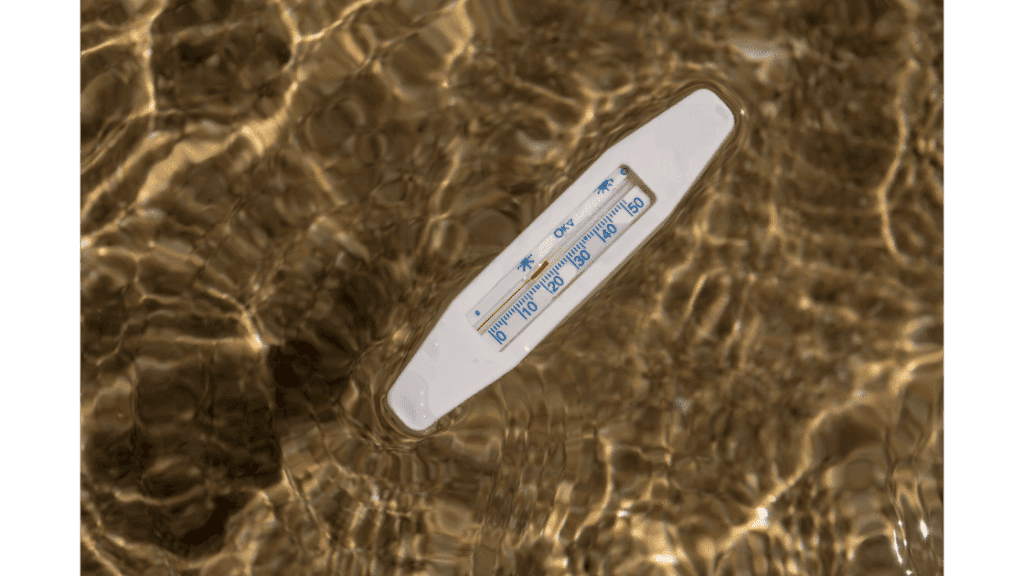
This has been mentioned in this article multiple times because this is the most important thing to remember. Use lukewarm water or at least one that is at body temperature.
Typically, pregnant women have an internal temperature of roughly 37.2°C. Ideally, you should take a warm bath with a water temperature of 37°C to 37.2°C
It’s best to invest in a water thermometer because you can use it when taking a bath now and when you’re giving your soon-to-be-born child a bath.
If you are not too comfortable with a full body bath, try soaking your feet in a warm foot bath for an alternate way of stress reduction and relaxation.
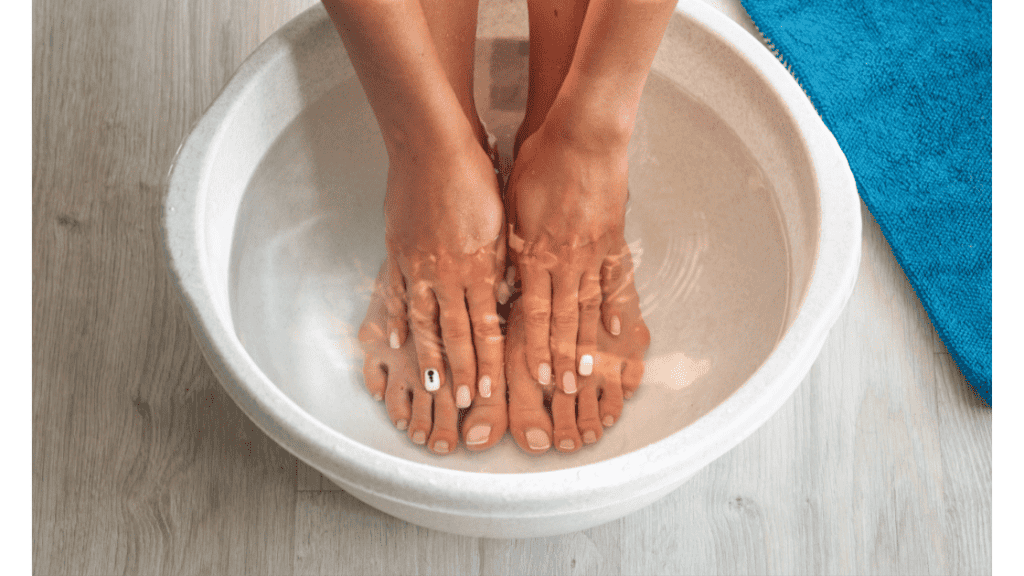
Pregnant women can also benefit from the feeling of weightlessness that comes with being soaked in water.
If you enjoy taking baths while pregnant, you may want to talk to your doctor about the risks and advantages of water birth.
Takeaway
You will experience all types of discomforts that you didn’t know were possible during your pregnancy journey. Of course, it is all worth it when you finally give birth, but you can still have relaxation in the form of a bath.
As long as your doctor gives you a thumbs up to do baking soda baths and correctly chooses your bath items, you can take a bath without risk. Baths may lift your spirits, ease tension, and relax your aching muscles and body.
For many expectant mothers, relaxing in the bathtub with a glass of cold water, a few lighted candles and some essential oils are just the thing to help them unwind and make them psychologically ready for birthing.
Always be extra cautious to ensure your safety and the health of both you and your baby.

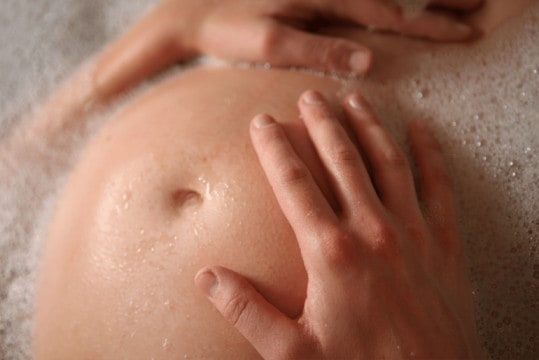




Comments are closed.